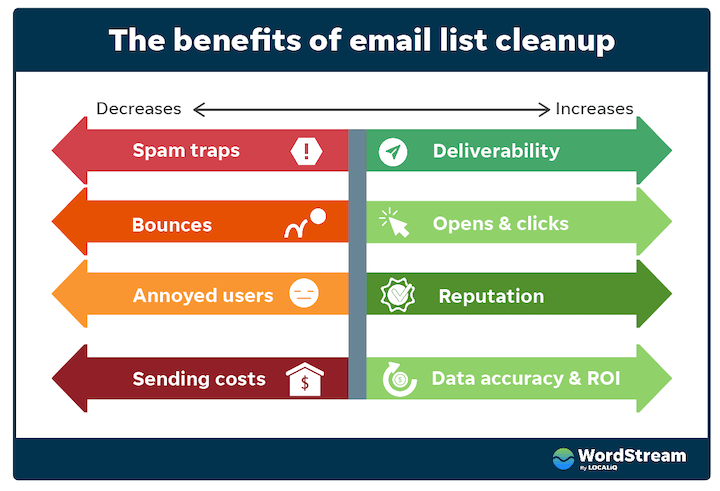Great Guide To Deciding On A Physical Therapists Email List
Wiki Article
What Factors Should I Be Thinking About When Buying What Should I Consider When Purchasing A Cpa Email List?
Consider the following factors before purchasing an email list of CPAs (Certified Public Accountants):1. The list needs to be compliant with all legal requirements and relevant to the marketing objectives. What you should consider is:1. Data Quality and Accuracy
Source of Data: Check whether the information is genuine. The most reliable providers usually collect data from reliable sources such as professional directories or trade associations. Avoid lists compiled using scraping or other methods that are not reliable as they may contain inaccurate or outdated information.
Verification Process: Check that the email list is current and recently updated. It can reduce bounce rates and also ensure that the email addresses are valid. CPAs have a reputation for changing their jobs and firms often, which is why it's important to ask how often they are updated.
Segmentation and Filters great CPA list will provide different options for segmentation, such as the location, industry specialty as well as years of experience or size of the firm. Tailored targeting using these parameters can enhance the effectiveness of your advertising campaigns.
2. Legal Regulations
Data Privacy Laws - Ensure that the email list is compliant with laws and regulations at the national level including the California Consumer Privacy Act. The list must include email addresses obtained legally and only with consent.
Compliance with CAN-SPAM Act: In the case of U.S. email campaigns, the list must be in compliance with the CAN-SPAM Act, which regulates commercial email communications. This means providing opt-out options and avoiding misleading subject lines or content. Infractions can result in fines and legal issues.
Opt-in Consent: Ensure that the email addresses have been obtained through consent to opt-in. The recipient must have granted their consent to receive email from third-party marketers. This decreases the chance of receiving spam complaints. This also improves engagement.
3. Provider Reputation
Check the reputation of the provider. To determine the experiences of clients who have used them before, look through reviews, case studies, and testimonials. Established firms with proven track records are more likely to provide accurate, high-quality data.
Transparency: The service provider must be transparent about the way in which the data was gathered and when it's up-to-date. If the methods used by the provider are not clear, that is a major red warning.
Customer Support: A reliable and dependable support service is vital if you require assistance with creating lists, troubleshooting or understanding the compliance requirements. A reliable support system can make your life easier and save you time throughout the course of the campaign.
4. Cost and ROI
Pricing Models: Different vendors have different pricing plans. Some charge per contact, while others offer charge a flat rate or subscription. Examine ROI expectations against costs while also balancing the price and quality of the list.
Check out the refund policy. If you receive a lot of your emails are not correct or untrue, you may be entitled to a complete or partial reimbursement. A guarantee gives you peace-of-mind.
Cost in comparison to. Value: Don't focus only on price. A cheaper list may seem appealing, but it may result in low participation or high bounce rates if it's not of high-quality. Spend money on lists that provide value in terms of accuracy and segmentation.
5. Ownership of Data, Usage of Data Access, and Ownership
Single-Use vs. Multiple-Use: Determine if you're buying the list for a single use or when you own the list and are able to use it in ongoing campaigns. Although a list for single-use is more affordable, having your own list allows you to conduct longer-term campaigns.
Shared vs. Exclusive lists: Determine whether the email list is only for you or shared with other buyers. Shared Lists - Determine whether you are the sole purchaser of an email list, or the list is shared by multiple buyers. Email lists shared with others could result in audience fatigue as recipients are bombarded with emails from different businesses.
6. Data Integration and Format
CRM compatibility: Make sure that the list you receive is in a format that works with your marketing or CRM software. Examples include CSV and Excel. This makes it easy to manage managing data and import.
Ease of Use: Evaluate how easily the data can be categorized and controlled once integrated into your system. A well-organized database can help make targeting and personalization more efficient.
7. Ethical Aspects
Relevance of Content - CPAs are on an extremely busy schedule, which is why it's crucial to provide content that's relevant and provides the value. Not sending relevant or unprofessional messages could harm your reputation and increase complaints.
Avoid sending out numerous emails. Insufficient communication could lead to complaints about spam and unsubscribes that can damage the reputation of the sender.
The article's conclusion is:
To make sure that your investment will be worthwhile, you should prioritize the quality of your data and legal compliance when purchasing an email database from a CPA supplier. An effective segmentation strategy, ethical practice and targeted marketing will maximize engagement and ROI while maintaining a positive brand image. View the pro cpa email list for blog guide.

What Should I Think About When Purchasing An Appending Machine For Data?
Consideration of data appending service is crucial. You must consider multiple aspects to be certain that the data appending service will enhance the accuracy and quality of your information while maintaining ethical, legal, and conformity standards. Data appending is the process of adding data to your database, for example, demographic data and phone numbers as well as email addresses. These are the most important aspects to consider when purchasing data appending services: 1. Data accuracy and quality
Source of Data - Ensure that the provider of data uses reliable and high-quality sources, such as databases, public records and opt-in directories. The most reliable service providers typically gather data through legitimate sources. They make sure that the information is correct and relevant.
Verification Process: Check whether the service provider has a robust procedure for validating and verifying the data. This will help ensure that your data is accurate as well as current and pertinent. As part of the service provided by your provider you can expect frequent updates and cleansing of data.
Match Rate: Every provider has a unique match rate, which is the percentage of records that you are able to enhance with the addition of new data. You must balance a high percentage of match with the accuracy of your data. High match rates are vital however they shouldn't come with a price.
Customization If you have particular needs, be sure that the company you choose to use offers custom data append solutions. There are many kinds of data like demographic, firmographic, or behavioral data.
2. Data Security and Privacy
Conformity with regulations Data appending is the process of handling personal information, so it's crucial that the application is in compliance with the regulations on data protection such as General Data Protection Regulation (GDPR), California Consumer Privacy Act (CCPA) as well as other relevant privacy laws. Appended data needs to be collected, processed and stored in a secure manner to avoid penalties and reputational damage.
Consent management: Ensure to only use information provided by people who have explicitly agreed to the data to be shared. Avoid data that relies on questionable or violative methods.
Data Security: Ensure the provider is using stringent security measures for your database as well as the data that will be added. This includes secure data transfer protocols, encryption, and access controls.
3. Provider Reputation
Reputable Vendors: Choose an organization with a solid reputation for providing accurate and dependable services. Check out reviews, testimonials as well as case studies, to evaluate their past performance. A well-established company is more likely to provide quality services and will ensure legal compliance.
Some providers are specialized in specific areas like healthcare, finance or retail. Choose vendors with experience and expertise in your particular market if your company is located in this field. They can provide you with more customized solutions that match your particular needs.
4. Cost and Return on Investement (ROI).
Pricing Models. Many data appending companies have different pricing models. They might charge a flat fee for a batch of updates or base their charges on the number of records. Be aware of the pricing structure and its alignment with your budget. Be cautious of low-cost alternatives, since they could be a sign of poor quality data.
Calculate the ROI potential of incorporating information. A good service should assist you in increasing the engagement of your customers, improve conversion rates and enhance overall performance of your marketing. Consider the price in relation against the anticipated benefits of having better, more relevant analytics.
5. Data Types, Appending Options and Other Options
Types of data: Consider the types of information you would like to add to your database. The most common types are:
Email addresses are crucial for email marketing campaigns.
The importance of phone numbers is in sales or customer service.
Demographic data: Very useful for segmentation and targeting in marketing.
Firmographic data is vital for B2B firms that want to focus their efforts on businesses based on revenue, employee numbers, or industry.
Social Media profiles: Certain services allow you to add your social media accounts. This is a great option in social and digital marketing.
6. Data Format and Integration
Compatibility: Ensure that the data appended is formatted in a way that is compatible with your CRM system, marketing automation tool or other tools. Standard formats include CSV, Excel, or API integration, which allows for easy data import and use.
Data Enrichment and Cleansing: A good appending provider will offer data cleaning as well. The appending process includes the correction of data that is inaccurate, removal of duplicates, and the elimination of old records. Data enrichment is more than simply adding new data. It also improves the quality and accuracy of your existing database.
7. Ethical Questions
Transparency. Service providers must be open and transparent about how they collect and use the data. Appending services for data that are ethical have strict policies regarding data sourcing as well as usage and collection. This ensures the data is collected in a legal and transparent manner.
Influence on Engagement: You must be aware that adding contact information, such as emails or phone numbers should not lead to spammy or invasive practices. Make use of the data in a responsible manner. Be sure to follow best practices, including providing opt-outs and respecting privacy.
You can also read our conclusion.
Be sure to consider data quality and legal compliance when selecting data appending providers. Choose services that deliver reliable, valid data that is compliant with privacy laws such as GDPR as well as CCPA. Consider the long-term return of investment in reliable, rich data. When you choose the best appending service and focusing your efforts on ethical standards that will greatly improve your marketing strategies and also your business's performance. Check out the top rated data appending services for more advice.
